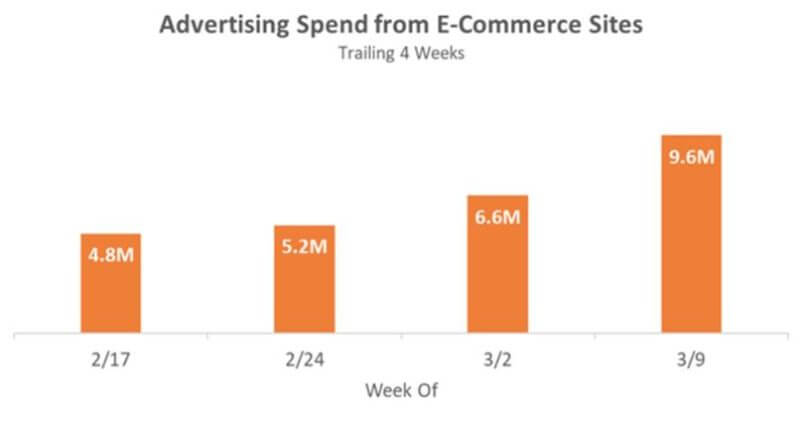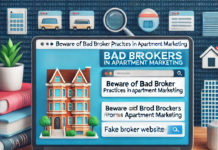In the midst of the coronavirus pandemic, companies of all sizes must adjust their plans and strategy. So, how does a company leverage digital marketing best practices during the coronavirus pandemic?
First and foremost, leveraging digital marketing best practices starts with your existing marketing strategy. For example, if you relied extensively on driving revenue through paid search (SEM), then your options are limited. If current revenue funded future marketing, then your funding source dries up during this pandemic. However, if you leverage paid search and SEO as lead generation and your customer base dries up, then you will see how your SEO strategy is performing.
Undoubtedly, the mandated social distancing and stay-at-home guidelines significantly disrupted the small businesses that line Main Street, USA.
As a result, many programs from the federal government and major corporations target small businesses. These small business grants are helpful (if companies qualify and can actually receive funding), but not the golden ticket that magically saves a business throughout the pandemic.
“The coronavirus pandemic is a serious health concern. As we all learn about the scale and scope of the virus, small businesses (and every business) unfortunately know that the best health solutions run counter to ideal economic outcomes. Between social distancing and WFH solutions to local or state-wide shutdowns and essential businesses, every part of the country is seeing a reduction in economic activity. However, recent corporate and governmental actions aim to bolster local companies, which are typically the lifeblood of any community. As a result, some small business grants picked up amid the coronavirus pandemic.”
So, what are the digital marketing best practices that will help engage customers?
Leverage Local SEO Strategies

In an economic recession, local businesses need to leverage eyeballs. In today’s world, this means maximizing your exposure to Google. As most marketers know, relying on Google (or any platform) offers pros and cons. For the most part, platforms like Google provide significant advantages, but there are a few setbacks. For example, during the coronavirus pandemic, Google has slowed, if not, shut down, many aspects of a foundational local SEO strategy. Case in point, small businesses have relentlessly attempted to generate a steady flow of reviews, however, now Google has made reviews “unavailable during this time.”
Fortunately, any reviews will be published after the pandemic. And, the rationale is filled with good intentions to avoid negative reviews posted by customers with poor feedback to coronavirus changes to a business. Likewise, it seems like all Google local initiatives are at a standstill, so trying to verify a new location is lost time.
However, Google does provide some new local SEO strategies that enhance best practices and help engage with your audience.
-
Update Hours in Your GMB Listing
In particular, ensuring your Google My Business profile includes up-to-date information helps customers know if you are open, temporarily closed or shifting to something different.
For example, Search Engine Land held a roundtable discussion regarding how to handle store hours during the pandemic. The main question at hand for companies closing during the pandemic is how do you handle that in GMB?
“If your business has adjusted hours or is temporarily closed for a short period of time (less than two weeks), you should use special hours. For longer extended closures, two weeks or more, you should use the temporarily closed status if you’re able to.”
Related, industry experts believe that there are no long-term ramifications to marking your business temporarily closed.
-
Take Advantage of Covid-19 Posts
In addition to the hours update, Google also released a special GMB Post specifically related to the coronavirus pandemic (labeled Covid-19 in GMB). For example, if your company shifted all business to appointment by schedule, then created a Covid-19 Post. These posts render in the GMB profile listing (just like other posts), but presumably will not be automatically removed after seven days.
The main tactic to keep customers engaged is keep them informed. If your company is struggling (like many are), then an authentic message like Shop Local and incentivize people to buy now for services down the road may help improve. However, GMB posts are not a major revenue driver, they are simply another conduit for people to learn more. The same messages should be incorporated into other strategies like email marketing and posted on your company site.
Trust Your SEO Strategy

Search engine optimization provides the foundation of your digital marketing strategy. From title tags and meta descriptions to structured data and on-page content, ensuring your site includes search terms relevant to your brand remains the core of engaging with customers. After all, if they can’t find you, then they can’t engage with you. As a result, the coronavirus pandemic offers a learning experience to marketers (and educational to SEO providers). As consumer behavior changes, marketing companies cannot solely rely on paid search to drive revenue. Plus, depending on your industry, if your budgets are cut, then organic revenue might need to sustain your business.
For example, a comprehensive SEO strategy produced content around all applicable terms to your business. Starting with your bread and butter, but as your SEO plans evolved, adding terms around tangential terms (or long-form keywords) may shine as customers search for new items.
Why is content still king in SEO?
Effective content marketing builds a relationship with potential customers and ultimately, leverage content strategies that improve their business growth, such as:
-
Boosts Sales
Companies that optimize their content assets enable the ability to convert prospects into customers. Content educates potential customers about a various product or service, but also the buying decision process. Ultimately, proper content marketing helps streamline the sales cycle.
-
Attracts Committed & Loyal Customers
Companies that create content aimed at solving customer problems attracts more loyal and committed customers. Consistent content builds a value-add reputation, which means potential customers view your company as a problem solver that generates loyalty over time.
-
Develops & Deepens Reputation
Companies that produce valuable content not only attracts loyal customers, but also develops and deepens a brand’s reputation. As customers seek out well-written and useful content, potential customers seek your content, which builds and develops name recognition and your reputation.
-
Decreases Marketing Costs
Companies that develop and execute a sound content marketing strategy ultimately lower marketing costs. Interestingly, content marketing is inexpensive, safe and beneficial because evergreen content continues working for you well after the asset is produced. In particular, for companies with the resources to produce in-house content, then the main cost is time. Ultimately, content increases traffic and builds relationships with your industry and your clients.
Paid Search Attracts New Eyeballs

For companies that really need to push the gas and find customers, then paid search remains the best external driver of producing revenue. As the negative economic impact of the coronavirus hit the US markets, advertisers must increase spend. Search Engine Land noted the across the board increase in ad spend.
“E-commerce ad spending jumped from $4.8 million the week of February 17 to $9.6 million the week of March 9. The data, released by media sales intelligence firm MediaRadar on Friday, encompasses advertising spend across national TV, print and digital media, including websites, Snapchat, YouTube and podcasts.”

Subsequently, as consumer behavior adapts to shelter-in-place guidelines, every industry must adapt. For example, home services businesses may see an uptick in business. While people avoid interactions, they are spending more time at home, which means things break, so emergency services may increase. Conversely, home projects, like a new fence or flooring, may suffer because consumers are saving funds for more vital items.
Additionally, any small businesses that can provide food or essential items are probably overloaded with work. However, they must balance safety restrictions and their own inventory vs the need to find customers. In all likelihood, the local market will remain busy, but a tangential company might be able to leverage paid search to say “we sell produce and deliver!”
Ultimately, paid search marketing remains a primary driver of producing additional revenue, but the least likely in driving true customer engagement. However, if your business sells a product or produces a service that helps with an essential good, then paid search helps target new customers. Once they are in your community, rely on other brand messaging for engagement. As a result, engagement and authentic messaging converts them into permanent members of your tribe.
Remain Authentic on Social Media

One of the tried and true ways to engage customers via social media remains authenticity. In a noisy world, providing personal messages continues to drive customer loyalty and support. As one of the lasting marketing trends of the last few years, companies that remain authenticity, while evolving with societal changes continue to gain engagement.
“Marketers must find ways to connect with potential customers. As customers adopt new forms of technology and media, then marketers must adapt. Naturally, social media marketing evolved as the rise of platforms like Facebook captured our attention. As discussed, these platforms continuously evolve, so marketers must remain fluid in their approach to finding ways to connect with their audience.”
For example, businesses posting updates about their hours is mandatory, but what about asking how your followers are doing? As people work from home (or unfortunately become furloughed or laid off), they naturally spend more time on social media. From Facebook and Instagram to Twitter and Tik Tok, each platform follows their own rules, but each offers a different way to engage.
To start, ask your followers how they are doing on Facebook or share some quarantine activities. Or, post some behind the scenes or personal pictures on Instagram about how your business (or family) balance work and life under quarantine. From fun memes to personal anecdotes, there are plenty of ways to provide authentic messages that drive engagement.
Lean Into Increased Video Communication
Additionally, Facebook recently shared some statistics about the increased usage of their apps.
- In many hit hard countries, total messaging increased more than 50% over the last month.
- Similarly, voice and video calling have more than doubled on Messenger and WhatsApp.
- In Italy, Facebook apps experienced usage up to 70% more than pre-coronavirus, along with a doubling of Instagram and Facebook Live views doubled in a week.
As a result, marketers should lean into the video capability and hold their own Facebook Live interviews with company executives. However, they must stand out from the crowd. So, find a unique niche that supports your brand. Another “commodity” like message that follows the herd does not drive engagement. Therefore, think about marketing campaigns that resonated in the past and you may find a path towards engagement.
Finally, businesses that rely on in-person sales, such as apartment seekers, must leverage FB Live or FaceTime or Zoom (or any popular video conference call technology). Traditional in-person companies must create a virtual experience moving forward. Although it may not be the same as “seeing it with your own eyes” real time video tours make a big difference in providing that personal experience.
The Post-Coronavirus World
Finally, as we continue to learn how the coronavirus will impact the future of business, we can observe some changes. For example, the shift to e-commerce will seemingly quicken. Pre-coronavirus, the overwhelming majority of commerce still occurred offline. Now, with in-person commerce at a standstill, people will gain more comfort in online shopping. Or, stores that relied on in-person retail, must adapt to e-commerce in order to survive the pandemic.
Additionally, other changes like remote work seem like another trend that will continue its momentum. For many, this forced experiment shows executives that quality workers continues their production in the office or at home. As a result of the shift, companies require less office space, which should negatively impact the commercial real estate world. Related, the small downtown coffee shops and luncheonettes likely suffer as well from reduced demand. At the same time, the need for high quality home office equipment, like speakers, furniture and headphones! Plus, the small coffee shops in the suburbs should see increased demand as people still seek some personal connection.
Ultimately, the markets will shift in ways that most of us will not envision. However, following the best digital marketing practices and engaging in a comprehensive strategy prepares companies for these new business realities.





